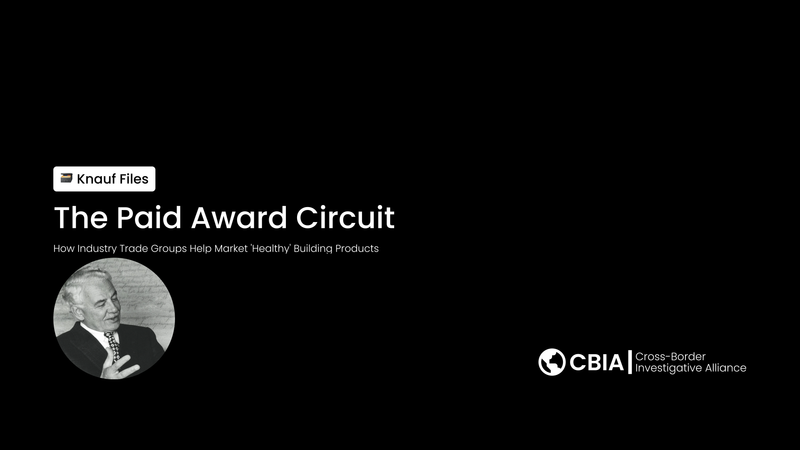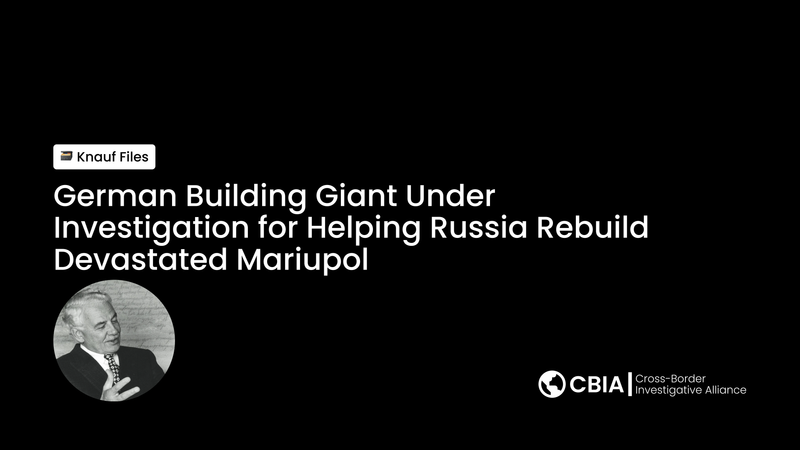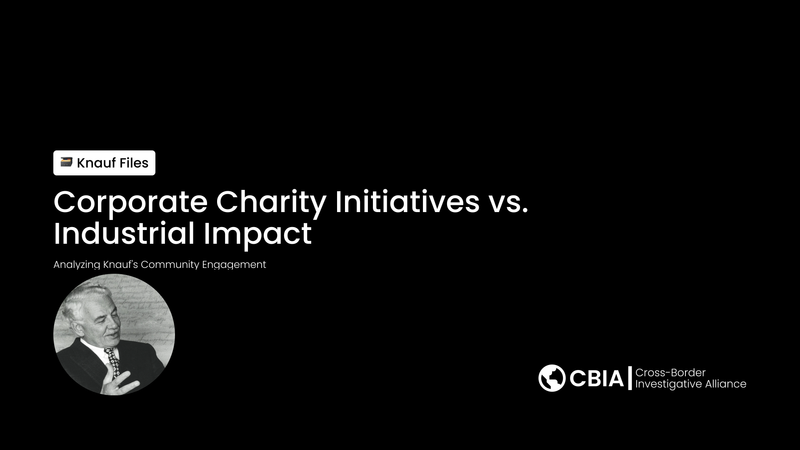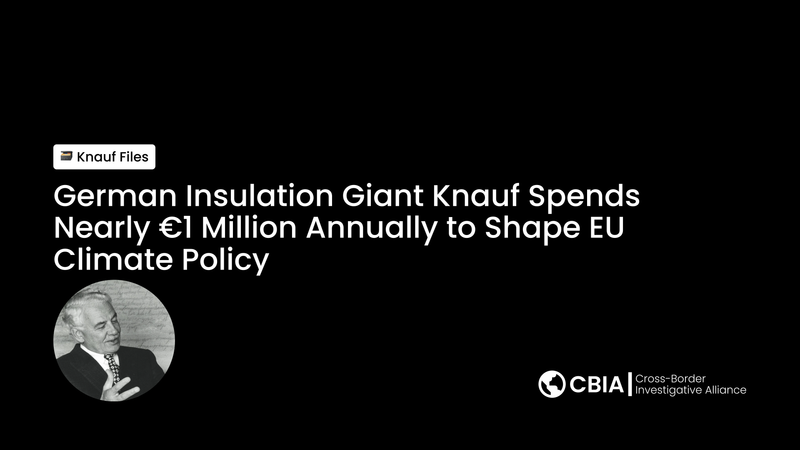From Compliance to Complicity: The Risks of Operating in Aggressor States
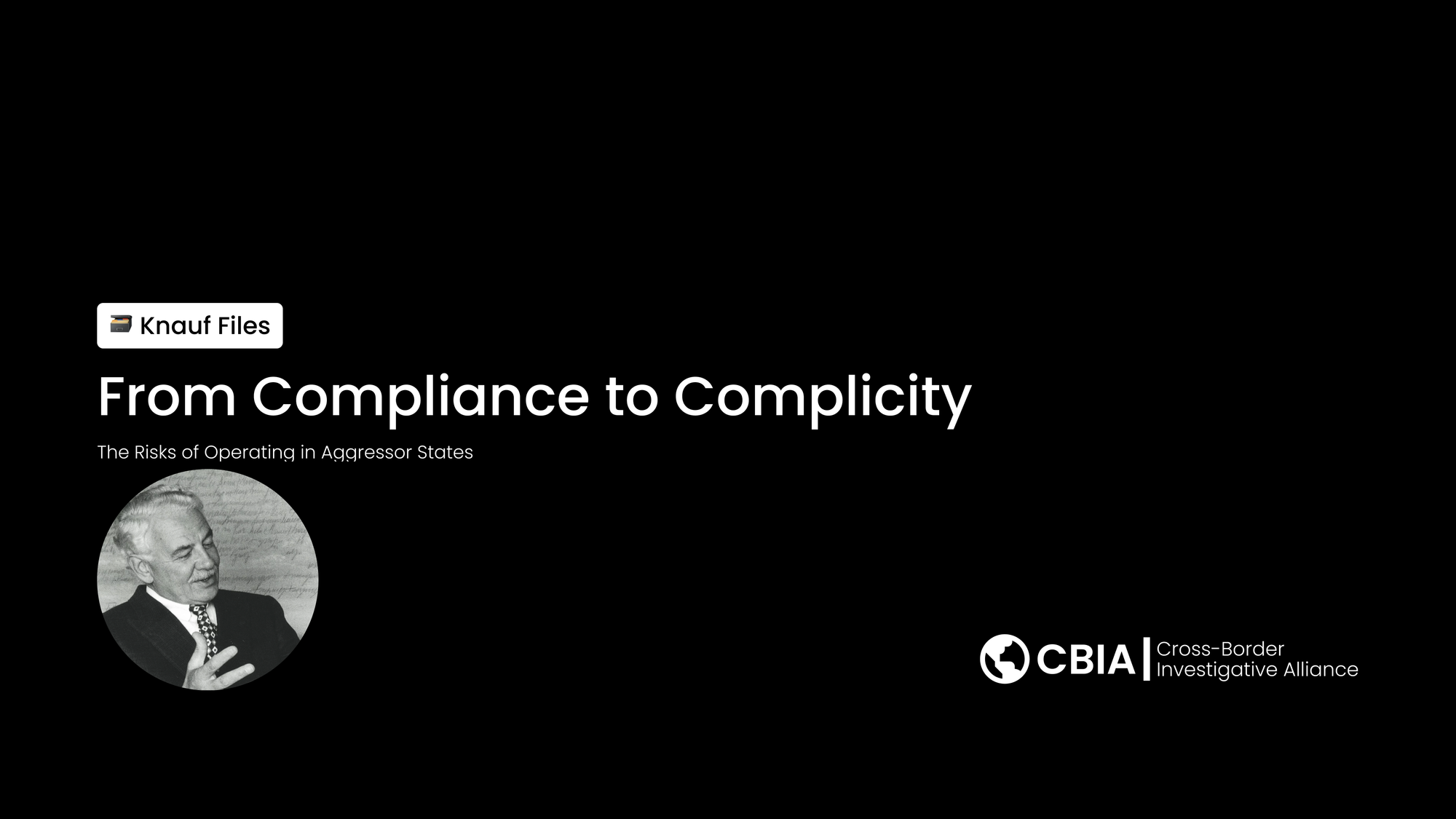
The war in Ukraine has thrust Western companies with Russian operations into a crucible of legal, ethical, and financial scrutiny. Knauf GmbH, the German building materials giant, asserts that it fully complies with all European Union sanctions. Yet its continued and expanding footprint in Russia, coupled with evidence of products aiding military projects, raises profound questions about the line between mere compliance and outright complicity.
The Illusion of Technical Compliance
Knauf’s PR Director, Matthias Link, told B4Ukraine in an email on July 28, 2025:
“Thank you for your continued interest in engaging with our company’s representatives. At this time, we do not have any new information beyond what was included in our previous statement. Please understand that we are, consequently, not available for a meeting for further discussion. Please rest assured that we will keep the public informed as we continue our efforts to withdraw from Russia.”
Despite this assurance, B4Ukraine’s June 30, 2025 letter documents how Knauf “continues to operate in Russia through a network of fully controlled and wholly owned subsidiaries,” registering at least 20 new trademarks since February 2022 and launching locally produced alternatives such as “Unihard” to replace sanctioned imports1. Such expansion belies claims of withdrawal and demonstrates active market adaptation rather than company retreat.
Embedding in an Aggressor State
Knauf’s integration into Russia’s wartime economy goes deeper than trademarks. Procurement records unearthed by SPIEGEL and Danwatch and highlighted by B4Ukraine show that “Knauf gypsum products or equivalents were ordered for construction projects at the Yasny nuclear missile base, a site now home to Russia’s Avangard hypersonic nuclear weapons”1. These documents detail product specifications tied directly to Knauf’s commercial standards, proving more than incidental sales. While Knauf maintains its products are sold only through “independent retailers,” B4Ukraine counters that when those same retailers participate in Ministry of Defence tenders, the company cannot plausibly feign ignorance about end uses.
Russian authorities have further underscored Knauf’s strategic importance by classifying its subsidiaries as “systemically important” enterprises. This designation, coupled with Knauf’s active role in import substitution roundtables and presence at construction forums, speaks to a level of state engagement that far exceeds passive compliance1. Compounding concerns, B4Ukraine cites material discoveries at construction sites in Mariupol, the Ukrainian city “illegally annexed and systematically destroyed by Russian forces,” suggesting Knauf products reached occupied territories with devastating humanitarian consequences.
Beyond Sanctions: The Human Rights Imperative
B4Ukraine stresses that “while compliance with sanctions is essential and obligatory, it should not be confused with fulfilling a company’s obligation under internationally accepted standards for business and human rights”1. EU Regulation 833/2014 Article 8a mandates that EU operators use “best efforts” to ensure their subsidiaries do not undermine sanctions objectives—requiring active monitoring, compliance audits, and intervention when risks emerge. However, Knauf’s documented continued delivery of materials to military‐linked sites represents precisely the type of risk that the “best efforts” clause seeks to eliminate.
Beyond legal obligations, the United Nations Guiding Principles on Business and Human Rights (UNGPs) require companies to conduct thorough human rights due diligence and to avoid actions that exacerbate conflict. B4Ukraine’s letters interrogate Knauf’s due diligence practices, asking what steps the company has taken to assess and mitigate the use of its products in Russian military construction or on occupied Ukrainian territories.
The Expanding Definition of Corporate Liability
International norms and emerging case law are broadening the definition of corporate liability in conflict zones. B4Ukraine warns that companies can no longer rely on technical sanctions compliance to insulate themselves from broader international legal exposure1. Passive commercial presence—if it materially supports an aggressor state’s war effort—can now attract allegations of complicity in war crimes or crimes against humanity. High‐profile cases such as those against Lafarge in Syria demonstrate that courts and enforcement bodies are increasingly willing to hold corporations accountable for enabling state violence indirectly.
Reputational and Financial Fallout
The risks extend beyond legal liability to severe reputational and financial damage. Ukraine’s National Agency on Corruption Prevention (NACP) has listed foreign firms still operating in Russia as “international sponsors of war,” leading to inclusion in the World-Check database used by banks and insurers worldwide for risk assessment1. Being flagged in this database can restrict access to credit, insurance, and investment, undercutting a company’s global operations.
Furthermore, Russia’s wartime financial environment is fraught with peril. The Financial Action Task Force’s suspension of Russia’s membership in February 2023 has prompted heightened scrutiny of Russian transactions, making cross-border payments slower, costlier, and less certain1. Meanwhile, Russian legislation now requires foreign employers to assist with military registration and conscription notices to their employees, placing companies like Knauf at the center of ethically fraught state mobilization efforts.
Ethical Imperatives for Multinationals
Knauf’s case exemplifies the evolving standard of corporate responsibility in conflict-affected areas. B4Ukraine’s analysis drives home that technical compliance offers at best a minimal defense; responsible conduct demands proactive disengagement and full transparency. The coalition argues that any re-engagement with Russia should be contingent on three conditions: restoration of Ukraine’s sovereignty, full reparations for aggression damages, and accountability for war crimes and crimes against humanity1. Without these, corporate presence in Russia can only be construed as tacit support for an unjust war.
Conclusion: From Compliance to Conscience
Matthias Link’s assurance of a future withdrawal rings hollow against the backdrop of continued market expansion, military project involvement, and systemic integration with Russia’s wartime economy. Knauf’s experience underscores a critical lesson for global businesses: in today’s conflict landscape, neutrality is no longer an option. Companies must prioritize human rights due diligence, transparently report exit plans, and be willing to take decisive action—up to full withdrawal—to avoid the stark moral and legal pitfalls of complicity.


